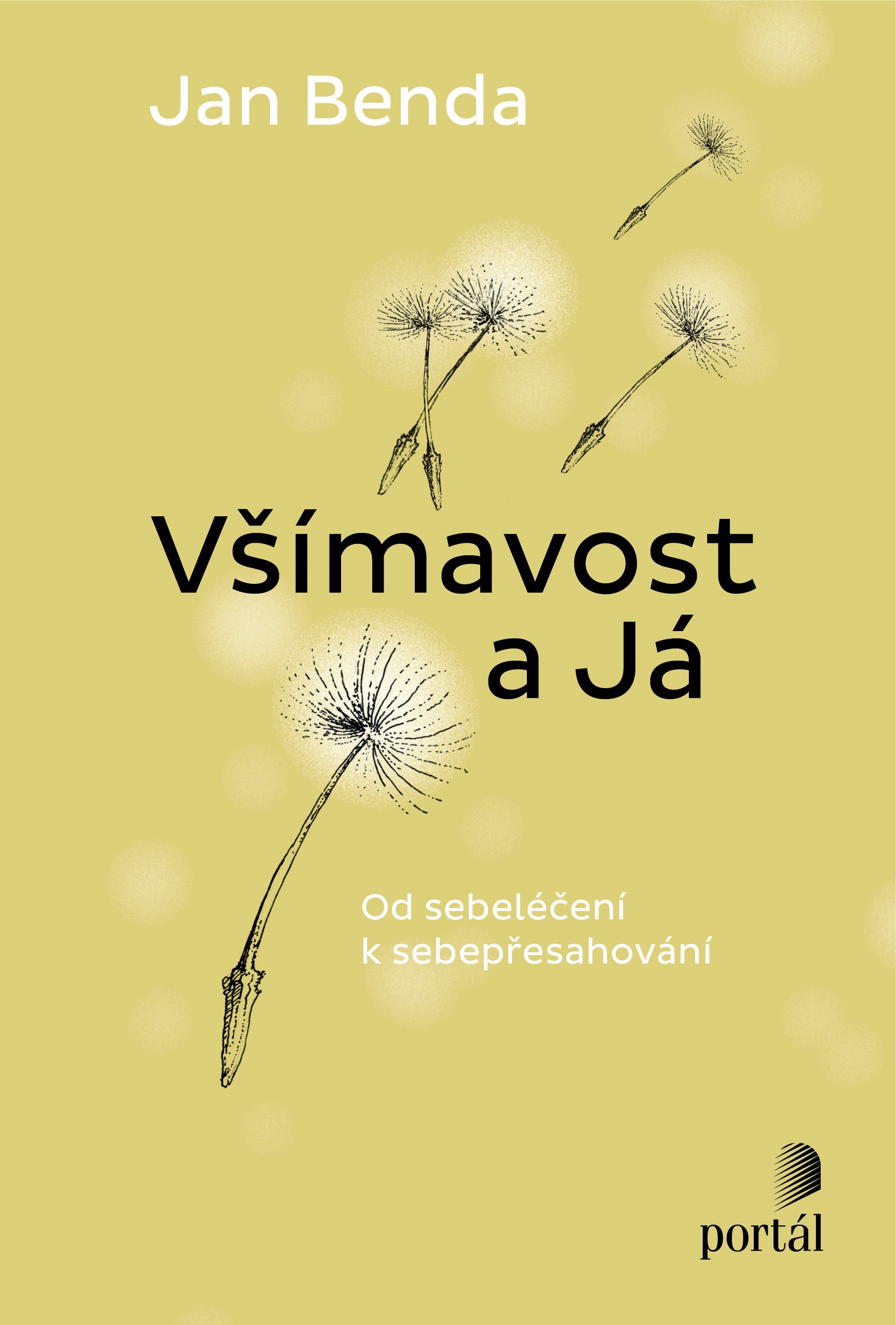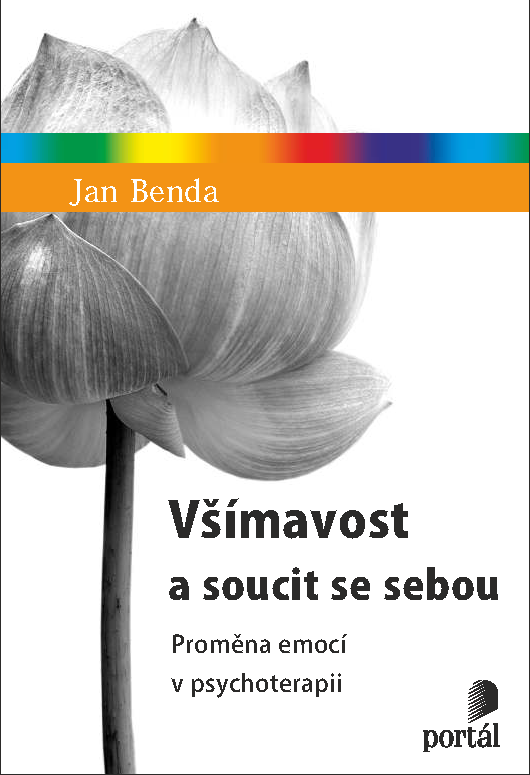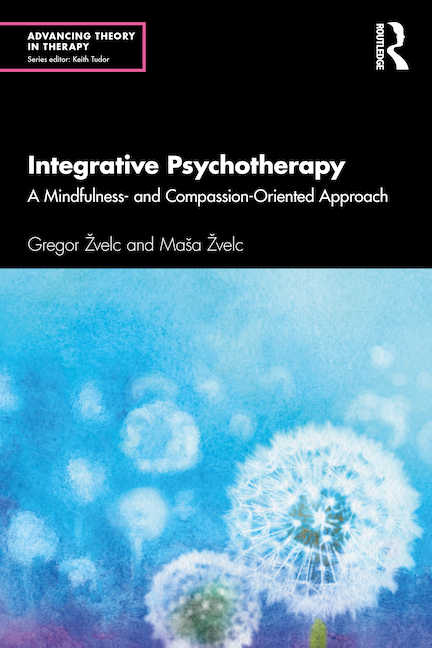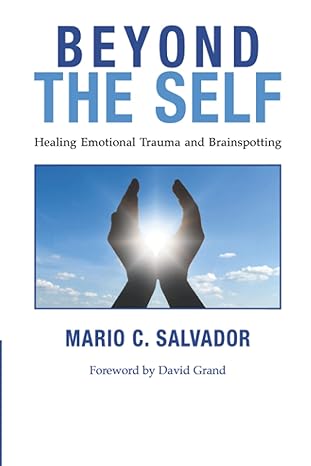Všímavost a Já
Od sebeléčení k sebepřesahování
Všímavost a Já: Od sebeléčení k sebepřesahování


Literatura
Kompletní seznam literatury použité v knize, si ve formátu pdf můžete stáhnout zde.
Všímavost a soucit se sebou
Proměna emocí v psychoterapii
Všímavost a soucit se sebou: Proměna emocí v psychoterapii


Autor v knize nejprve vysvětluje, že zaměření pozornosti na přítomné vjemy představuje pouze základní úroveň rozvoje všímavosti. Ukazuje, že všímavost nám postupně pomáhá především měnit postoj ke všemu, co prožíváme (zvláště k emocím), a mění také způsob, jak chápeme své vlastní Já.
Abychom tedy emocím lépe porozuměli a mohli je snáze akceptovat, odhaluje druhá část knihy „skrytá poselství“ našich emocí. Odlišuje adaptivní a maladaptivní podobu jednotlivých emocí a upozorňuje na zcela zásadní roli pocitů studu v etiologii mnoha duševních poruch. Další kapitoly diskutují vliv raných zkušeností z dětství na vytváření emočních schémat. Nabízejí přehled obranných mechanismů. Popisují mechanismy, jejichž prostřednictvím všímavost naše prožívání mění. A věnují se i vznešeným postojům, které nám také pomáhají naše strádání transcendovat.
Třetí část knihy představuje pět postupů, které lze k rozvíjení všímavosti využít v běžném individuálním terapeutickém sezení. Seznamuje čtenáře s obecným schématem korektivní emoční zkušenosti. Uvádí poznatky o rekonsolidaci paměti. A naznačuje i eticko-psychologické souvislosti našeho prožívání. Čtvrtá část knihy konečně podrobněji představuje tři konkrétní psychoterapeutické techniky.
Kniha obsahuje 18 cvičení k rozvíjení všímavosti a soucitu k sobě. Všechny postupy, techniky i cvičení mohou být využity v jakéhokoli psychoterapii.
Literatura
Kompletní seznam literatury použité v knize, si ve formátu pdf můžete stáhnout zde.
Integrative Psychotherapy
A Mindfulness- and Compassion-Oriented Approach
Integrative Psychotherapy: A Mindfulness- and Compassion-Oriented Approach


The book elucidates an approach which is holistic and based on evidence-based processes of change related to the main dimensions of human experience. In this approach, mindfulness and compassion are viewed as meta-processes of change that are used within an attuned therapeutic relationship to create a powerful therapeutic model that provides transformation and growth. The authors offer an exciting perspective on intersubjective physiology and the mutual connection between the client’s and therapist’s autonomic nervous systems.
Comprised of creatively applied research, the book will have an international appeal amongst psychotherapists/counsellors from different psychotherapy traditions and also students with advanced/postgraduate levels of experience.
Ke stažení zdarma
Knihu Integrative Psychotherapy si ve formátu pdf můžete zdarma stáhnout zde.
Beyond the Self
Healing Emotional Trauma and Brainspotting
Beyond the Self: Healing Emotional Trauma and Brainspotting


Throughout the book the author explains both, the process of constructing the ideas of the self and the way to heal the wounds attached to our sense of self, to clarify the vision of our genuine identity accurately and more intrinsically, and to reach a core self. From this point, we can manage our existence and see our experiences as the water that reflects our essential nature, and also employ the device of the self as a useful tool to direct our lives.
For Mario, healing our pain and overcoming our difficulties is the way to recognize the compassionate nature that belongs to us as humans, so we can awake to a more vital and peaceful perception of life.
Trauma-Sensitive Mindfulness
Practices for Safe and Transformative Healing
Trauma-Sensitive Mindfulness: Practices for Safe and Transformative Healing


At first glance, this appears to be a good thing: trauma creates stress, and mindfulness is a proven tool for reducing it. But the reality is not so simple.
Drawing on a decade of research and clinical experience, psychotherapist and educator David Treleaven shows that mindfulness meditation—practiced without an awareness of trauma—can exacerbate symptoms of traumatic stress. Instructed to pay close, sustained attention to their inner world, survivors can experience flashbacks, dissociation, and even retraumatization.
This raises a crucial question for mindfulness teachers, trauma professionals, and survivors everywhere: How can we minimize the potential dangers of mindfulness for survivors while leveraging its powerful benefits?
Trauma-Sensitive Mindfulness offers answers to this question. Part I provides an insightful and concise review of the histories of mindfulness and trauma, including the way modern neuroscience is shaping our understanding of both. Through grounded scholarship and wide-ranging case examples, Treleaven illustrates the ways mindfulness can help—or hinder—trauma recovery.
Part II distills these insights into five key principles for trauma-sensitive mindfulness. Covering the role of attention, arousal, relationship, dissociation, and social context within trauma-informed practice, Treleaven offers 36 specific modifications designed to support survivors’ safety and stability. The result is a groundbreaking and practical approach that empowers those looking to practice mindfulness in a safe, transformative way.